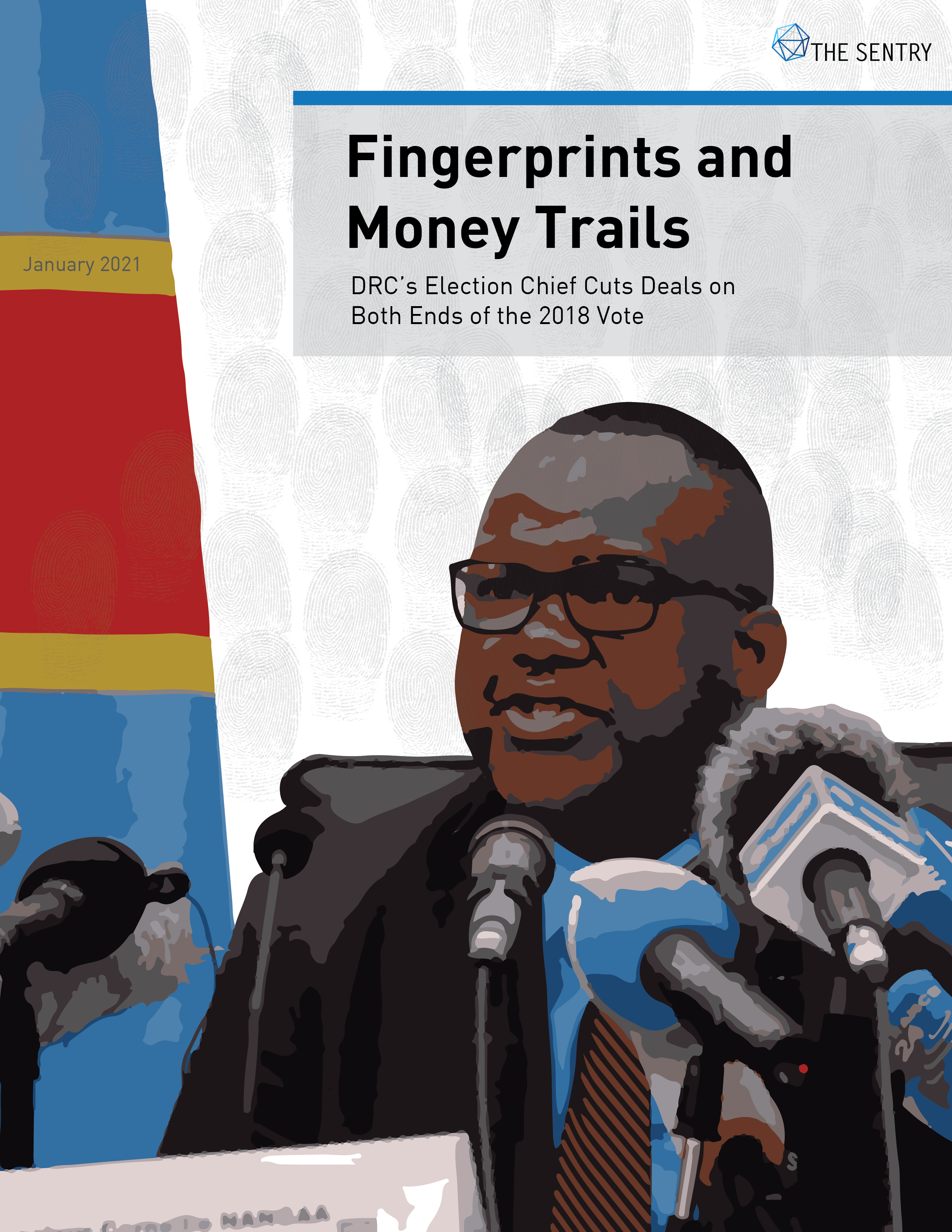 Download the full report
Download the full report
> Lire le rapport en français
Protests demanding electoral reform have convulsed cities across the Democratic Republic of Congo in recent months,* * * demonstrating the importance to the Congolese public of the proper and impartial administration of the national electoral commission, an official pillar of the DRC’s fragile democracy.*
The public’s desire for reform is in no small part driven by the December 2018 election cycle, which independent observers broadly recognize was tainted by serious irregularities, corruption, and violence.* * *
At a crucial moment during vote preparations, a key contract awarded by the DRC’s electoral commission, or Commission électorale nationale indépendante (CENI), ran the unmistakable risk of self-dealing, according to evidence reviewed by The Sentry.
In January 2018, the CENI awarded a multimillion-dollar services contract to two companies, one of which was backed by would-be business partners of the commission’s president, Corneille Nangaa Yobeluo. Other companies were unable to compete for the contract to remove duplicate voter registrations from among the tens of millions of entries in the DRC’s electoral roll. Nangaa has since been placed under US sanctions for his alleged role in embezzling election funds,* charges he and the CENI have strongly denied.*
“Dans le flou en RDC”
Consulter le rapport en français.
His future business partners included Roger Abotome Bekabisya, a national lawmaker from Nangaa’s home province who prevailed in the elections the CENI president oversaw. After the vote results were announced in 2019, the pair collaborated on an abortive mining venture in resource-rich Haut-Katanga province, records show. The US sanctions imposed on Nangaa caused the investors involved to abandon their plans, according to Abotome, who denied that these events involved corruption in any form or that his dealings with the CENI president had any bearing on his electoral success.*
The evidence pointing to the risk of impropriety at the CENI highlights the need for electoral and anti-corruption reform in the DRC. A wider system of kleptocracy has long plagued the country, creating incentives for leaders to cling to power and hijack state institutions, such as the electoral commission, for their own benefit and for that of their foreign and domestic facilitators.*
In response, the DRC’s international partners must work with Congolese authorities and the banking sector to strengthen financial oversight and public procurement safeguards. Among other measures, these actors should investigate this CENI contract and audit the electoral commission.
Ahead of the next election cycle, such actions would help increase voter confidence in the electoral process and bolster political stability as the DRC works to consolidate gains from its first largely peaceful transition of power since independence more than 60 years ago.
Read the response from Mr. Roger Abotome

